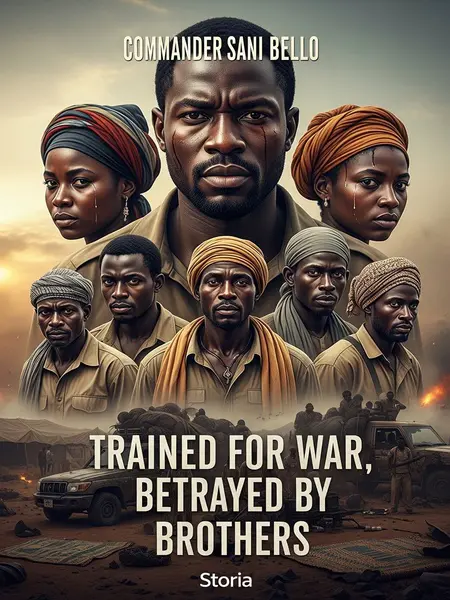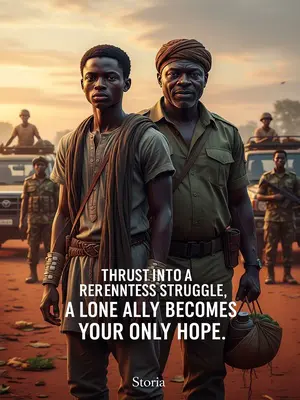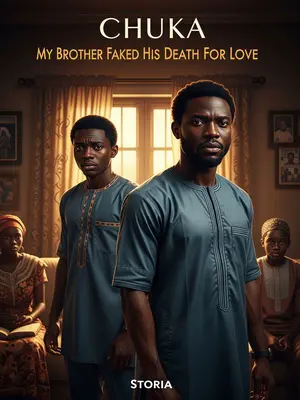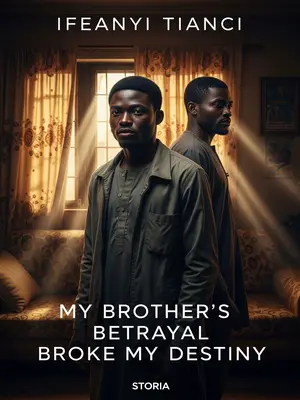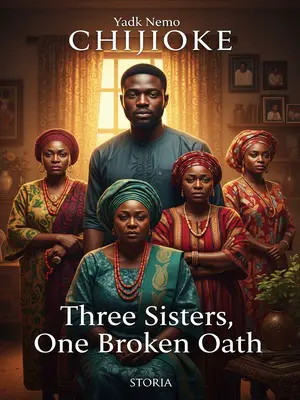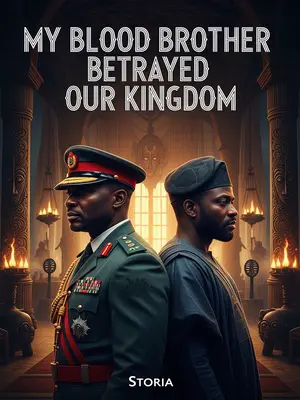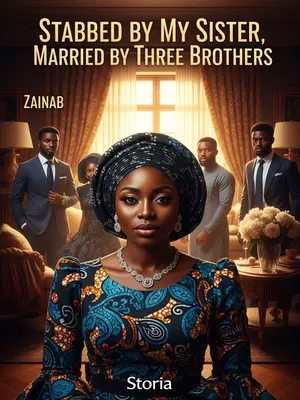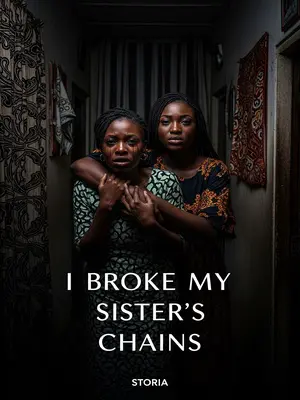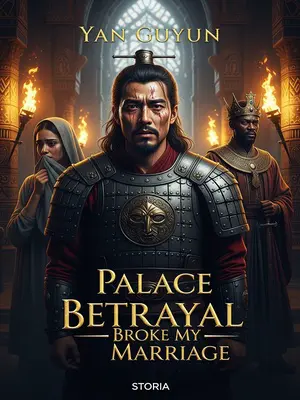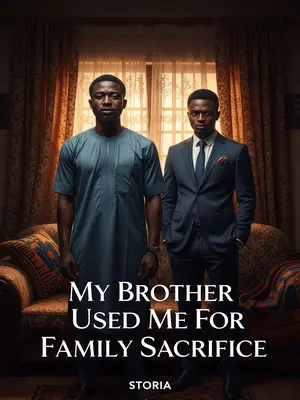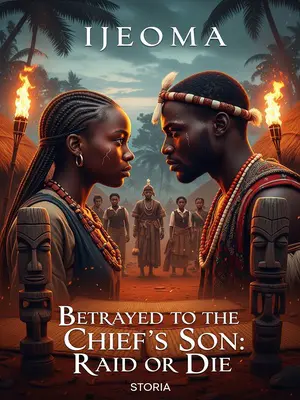Chapter 1: Shame and the Drumbeat
Why e be say every time dem dey write our story, na shame dem dey underline? Inside our history books, one line always dey repeat: Modern Nigerian history na history of national disgrace.
Na so so am! If you open the book from beginning reach now, e go dey there like stubborn yam for old woman fire—no matter how you add water, e no gree soft. Sometimes, I dey wonder if our pikin go still dey see the same thing when dem grow. E be like say this shame don tie wrapper for our leg as a people. But as e be, our own na to talk true story, so we go fit know where rain start to beat us.
Plenty things cause this our shame—economic wahala, cultural and technological backwardness, mostly because dem close their country from the rest of the world. But the main reason wey everybody dey point finger at be say: the Nigerian army no sabi fight. Dem no fit win anybody.
See ehn, if you enter any pepper soup joint for Lagos or even small kiosk for Enugu, na so so gist you go hear—"our soldiers dey quick drop gun!" The air go dey heavy with scent of pepper, sweat, and gist. Some go even dey use am yab, say even tout for Oshodi go fit chase dem soldier commot for road. True or not, na wetin dey people's mouth.
One go shout, "Abeg, if na me, I for run too! Who wan die for nothing?" The laughter go scatter everywhere, but inside everybody, small shame go dey hide.
Some people go talk say, for the last days of the old regime, na because their weapons don old—say dem dey use cutlass and spear fight people wey get gun. E fit sound like better excuse, but if you look am well, e no too make sense.
No be small matter. If na so, why dem no use juju, or call baba to give dem protection? Weapon get limit, but courage na another matter. If person really wan fight, even with ordinary stick, you go see as e go run the show.
Make we no forget: Nigerian army weapon no always bad. Look the Biafra War. That time, the federal side get some of the strongest equipment for West Africa and even get support from big countries. So why dem still chop big defeat for some battles?
Ask people wey dey around for those days, dem go tell you how dem dey parade with tanks and ogbonge aircraft, yet, for inside bush, small small boys with homemade gun go still give dem wahala. Na shameful thing!
Jump go the time of the military regimes. True, some rebel army weapon pass the government army own, but no be say government people dey fight with stick and stone. Dem start with British equipment, later use Soviet, then America come supply dem with plenty arms. Even if dem no fit win, e no suppose mean say dem go run enter bush for Middle Belt, abi? But by the time wahala don set, when rebel army don tire, government army still collect heavy beating for some campaigns—wey shock the whole world.
You go even hear say some soldiers, after dem chop beating, go dey talk for beer parlour, "Na our leaders cause am o, if to say dem give us better command, we for no lose face like this."
So, na weapon alone cause all this?
Abeg, no be so. You fit give chicken AK-47, e no go turn lion. Man wey get mind, na im dey use weapon well. Our wahala deep pass just gun and bullet.
But come 1990s, everything change. Peacekeeping missions break out. The new Nigeria army enter Liberia, and the result speak for itself: different countries join hand fight one, and na we win.
If you see how dem land for Monrovia, even oyibo journalists begin dey salute. Boys wey dem dey mock before suddenly dey hold ground, dey bring back respect for green-white-green.
If the Nigerian Army wayo the rebels for Civil War no make the world notice, the way Nigerian soldiers perform for ECOMOG shock everybody.
Dem carry our flag high. Stories go round say, "Na Naija boys rescue this city!" Even small children dey sing our praise for street. Our soldiers come dey walk with chest up, dey feel the respect wey dey long overdue.
The whole world begin respect New Nigeria, and Nigeria level for the world rise well well.
From BBC to Al Jazeera, even NTA and Radio Nigeria carry the tori. Na Naija story dey everywhere. People begin dey ask, "How una take do am?" Country wey dem dey laugh before, now na im dey carry last for parade? E shock everybody.
From here, you go see say: to say na only weapon dey decide who go win no follow at all. For the first three battles of the Liberia mission, the gap between Nigerian soldiers and the rebels weapon even wider pass the gap between government army and rebels during Civil War.
And if you ask any ECOMOG veteran, dem go tell you, "No be gun alone win war. Na your liver, your heart, and wetin dey push you!" Weapon fit finish, but true spirit no dey finish.
So the real question be: If no be weapon, and na the same country, the same people dey inside the army, how come the fighting power change like this just within few years? Wetin really change?
Na the kind question wey dey keep elders for veranda dey talk till night. Na this kain tori fit ginger person to ask, "Abi we dey miss something for our story?"
Coincidentally, some days ago, I watch one old Nollywood film, "The Drumbeat of Okpoko," wey talk about how the Freedom Army start—the same Freedom Army wey later turn to Nigerian Army. Make we use this film take talk why the army wey the movement build come strong like this.
The film na one kain throwback. The actors sef dey speak pidgin, dey shout slogans like, "For the people! For the land!" Even the background music na old highlife. As I dey watch, I begin dey remember stories my grandpapa tell me for night, when mosquito dey bite leg.
The main difference between movement army and old armies be say, this one na army wey get strong belief—ideology.
You go see am for their face. If dem dey march, dem march like people wey dey go collect land back from thief, no be just to impress oga for parade ground.
And the ideology fit talk am like this: Why you wan be soldier?
Na the kind question wey go make young man pause for junction. For old armies, people dey join army just to find food chop. But who go risk im life because of small silver coins? If you die, who go spend the money? So when wahala start, dem no dey fight—dem go run pass rabbit.
Some go even talk, "Na hunger carry me come army. If bullet touch me, na who go send money go village?" Na so! You no go see am for Nollywood film, but na our reality.
But for movement army, to be soldier mean say you carry the work of freeing suffering people and making the country better as your own responsibility. To die for country and people na the highest honour. The result? Even if dem scatter the army, if two or three soldiers remain, dem go gather again and continue to fight.
If you like scatter dem, dem go still dey regroup for bush, dey sing freedom song. Na that kain mind dey fear enemy pass weapon. Ask any old freedom fighter, e go tell you say, "Na the mind dey win war."
The difference for fighting power clear like day and night.
One fit be like man wey dey look for work, another be like man wey dey fight for im pikin and wife. Na two different spirits.
But the Freedom Army get this kind strong mind and fighting power from the beginning? No be so o.
No be magic at all. People still dey fear, some even dey doubt whether the whole movement go last till next week.
The Workers’ and Farmers’ Freedom Army no born complete. Meaning, dem no just strong from day one, and no be say once you join, you go suddenly become revolutionary.
Dem say even yam no dey ripe for one day. Na small small e dey take. So too, e dey take time before person wey run from police become person wey fit die for country.
In fact, when Freedom Army first start, people inside am come from everywhere: government soldiers, local vigilantes, even mountain bandits like Musa Gana and Okechukwu Nwosu.
If you check the list, na proper mixture—some people sabi bush, others sabi parade ground, some na former thief sef. Army wey gather everybody! No be small thing.
If na just talk, dem go become strong? No be so.
Abeg, na action follow word. You fit shout from now till tomorrow, if better leader no set example, na noise you dey make.
The main thing be say, na Movement leadership and serious teaching (ideological education) inside the army make the difference.
Na so so lecture and night talk. Dem go gather under big mango tree, dey reason wetin make people dey suffer for country, wetin dey wrong with power. No be say na book alone—na story, na sharing of pain. Na there the real change start.
The Palm Grove Reorganization wey Chief Adewale lead, wey bring Movement branch reach company level, na big step for army building. But that one only touch the small group wey survive the Uprising.
Imagine say na only dem waka come. E still show say, if person no build from ground up, e go still scatter. Dem small but dem set solid example for others.
This idea of "the Movement dey control the gun"—wey Adewale stand for—no be everybody gree at first. Dem argue, suffer, even quarrel well well—na so the famous Adewale–Okonkwo Dispute start. Because of this, Adewale even dey minority and dem push am go one side.
E reach one level, dem even dey drag for meeting, dey shout over each other. Some people say, "Make we just fight, forget all this grammar!" Others dey talk say, "If we no get sense, na so so fight we go dey fight till forever." Na so wahala start.
Na for Palm Grove Conference, wey dem do December 28, 1979, "the Movement controls the gun" really become the main way to run the army. To talk true, Palm Grove Conference na the turning point for Freedom Army and the beginning of Movement victory.
Na that day, women serve hot rice with goat meat, pepper dey choke nose, and even the stubborn ones join dance after agreement. But na the agreement dem reach matter pass. Everybody come reason say, if movement no dey lead, na so so wahala go full ground.
Make we look this part of history well.
Abeg, make you clear your eye. Wetin happen that year, na big lesson for anybody wey dey plan to fight oppression.
